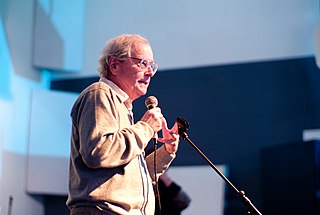A Quote by Roger Schank
The language of the culture also reflects the stories of the culture. One word or simple phrasal labels often describe the story adequately enough in what we have termed culturally common stories. To some extent, the stories of a culture are observable by inspecting the vocabulary of that culture. Often entire stories are embodied in one very culture-specific word. The story words unique to a culture reveal cultural differences.
Related Quotes
Storytelling is how we survive, when there's no feed, the story feeds something, it feeds the spirit, the imagination. I can't imagine life without stories, stories from my parents, my culture. Stories from other people's parents, their culture. That's how we learn from each other, it's the best way. That's why literature is so important, it connects us heart to heart.
We are shaped by stories from the first moments of life, and even before. Stories tell us who we are, why we are here, and what will become of us. Whenever humans try to make sense of their experience, they create a story, and we use those stories to answer all the big questions of life. The stories come from everywhere--from family, church, school, and the culture at large. They so surround and inhabit us that we often don't recognize that they are stories at all, breathing them in and out as a fish breathes water.
Since the 1960s, mainstream media has searched out and co-opted the most authentic things it could find in youth culture, whether that was psychedelic culture, anti-war culture, blue jeans culture. Eventually heavy metal culture, rap culture, electronica - they'll look for it and then market it back to kids at the mall.
Many teachers of the Sixties generation said "We will steal your children", and they did. A significant part of America has converted to the ideas of the 1960s - hedonism, self-indulgence and consumerism. For half of all Americans today, the Woodstock culture of the Sixties is the culture they grew up with - their traditional culture. For them, Judeo-Christian culture is outside the mainstream now. The counter-culture has become the dominant culture, and the former culture a dissident culture - something that is far out, and 'extreme'.
All of us somehow felt that the next battleground was going to be culture. We all felt somehow that our culture had been stolen from us-by commercial forces, by advertising agencies, by TV broadcasters. It felt like we were no longer singing our songs and telling stories, and generating our culture from the bottom up, but now we were somehow being spoon-fed this commercial culture top down.

































